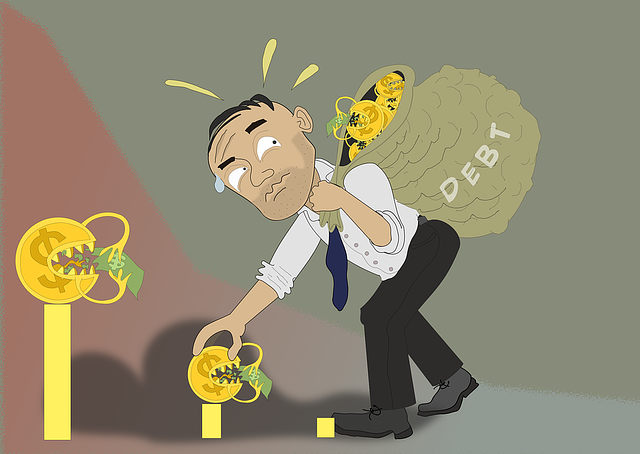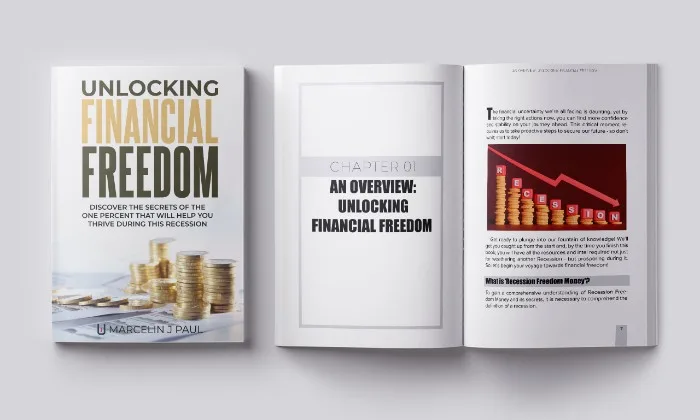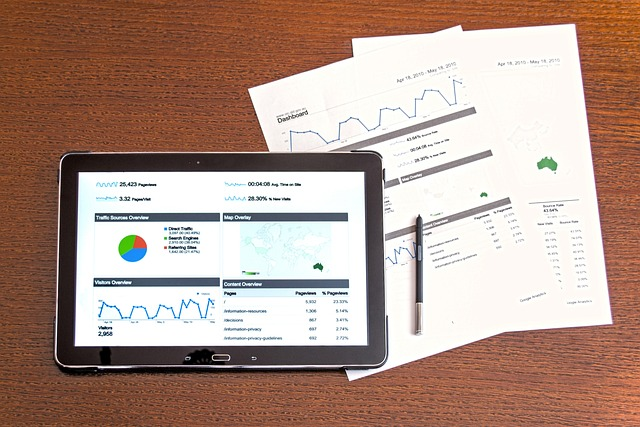Inflation is a phenomenon that represents the long-term climb in prices of commodities and services within a given economy.
When inflation hits, the value of money depreciates and everyday expenses become more expensive.
Inflation can be a major detriment to our personal finances, including savings accounts, investments, and credit card debt.
Grasping inflation and its consequences on personal finances is critical to securing your wealth during periods of economic uncertainty.
Taking proactive steps now can help safeguard you from the damaging effects of rising prices in the future.
Understanding Inflation

It is important to understand inflation in order to develop strategies to protect your money.
Inflation is a measure of the average price increase in goods and services over time.
Generally speaking, inflation occurs when there is an imbalance between supply and demand within the economy.
When more people demand certain goods or services than what can be supplied, prices tend to rise.
Inflation also drives up the cost of living, which can put a dent in your wallet if you are not prepared.
Estimations of inflation typically employ the Consumer Price Index (CPI) to determine fluctuations in expenses for a broad selection of goods and services that are usually bought by consumers.
When the consumer price index (CPI) rises, it implies that prices are climbing and our money is worth less. Effectively, its buying power diminishes as a result.
Related Reading:
The Psychology of Financial Freedom: Mindset Shifts to Help You Succeed
Causes of inflation
Various causes can contribute to inflation, some of which include:
Expansionary monetary policy: When central banks increase the money supply in an economy, it can lead to inflation.
This is because there is more money chasing the same amount of goods and services, which drives up prices.
Increased demand: When there is a high demand for goods and services, but the supply is limited, prices can increase.
This is because consumers are willing to pay more for a limited supply of goods and services.
Cost-push inflation: When the cost of production increases, it can lead to higher prices for goods and services.
This can happen when there is a shortage of raw materials, a rise in wages, or an increase in taxes or regulations.
Types of Inflation
Different types of inflation exist, including:
Demand-pull inflation: This occurs when there is excessive demand for goods and services in an economy, and the supply is unable to keep up.
This can lead to higher prices for goods and services.
Cost-push inflation: This occurs when the cost of production increases, leading to higher prices for goods and services.
Hyperinflation: This is a severe form of inflation where prices increase at an extremely rapid rate.
This can lead to a loss of confidence in the currency and a breakdown of the economy.
The Impact of Inflation on Finances

How inflation affects savings and investments
Inflation can have a significant impact on savings and investments.
When inflation increases, the value of money weakens, which means that savings and investments can also diminish in worth.
To illustrate, if the inflation rate is 3% annually, a savings account with an interest rate of only 1% will lead to the erosion of purchasing power in the long run.
To safeguard against rising prices, investors should consider investing in assets with the potential to improve over time.
These can include stocks treasury bonds, real estate, and commodities – each offering substantial growth opportunities for savvy individuals.
These assets can provide protection against inflation, increasing in value at a pace that outpaces rising inflation rates.
Related Reading:
A Fascinating Behind-the-Scenes Look at 15 Easy-to-Apply Websites to Make Money From Home
The Impact of Inflation on Retirement Planning
Inflation has the potential to severely damage retirement plans as it causes living costs to skyrocket, resulting in retirees needing more money for their lifestyle.
This can be an especially difficult undertaking for those retired individuals who depend on a fixed income, like Social Security or pension.
Retirees can strategically safeguard their finances against inflation by investing in assets that have the potential to rise over time, such as stocks and real estate.
For a more secure retirement, people can invest in annuities or other investments that ensure an income stream that is adjusted for inflation.
The Effect of Inflation on Debt and Loans

Inflation can offer both advantages and disadvantages to debtors and lenders alike.
Inflation erodes the worth of debt in real terms.
The loan repayment is made using dollars that have depreciated in value since the initial borrowing, thus creating a debt burden for the borrower.
This is advantageous for borrowers who have fixed-rate loans, as they can pay off the loan with dollars that are worth less in terms of purchasing power.
Nevertheless, inflation can have a detrimental effect on debt and loans.
As prices continue to rise with the cost of living, so too do interest rates rise in order to stay competitive.
This could result in borrowers having to pay greater interest rates on their loans, thus raising the cost of borrowing.
Download our free E-book today and start learning how to create wealth for yourself!

Strategies to Protect Your Wealth During Inflation
Investing in inflation-resistant bonds is an excellent way to protect your money against the erosive effects of rising prices.
These securities can provide a steady stream of income and help safeguard the value of your assets in times when other investments may be declining due to the stock market, volatility, or downturns.
Safeguard your wealth against inflation with Treasury Inflation-Protected Securities (TIPS).
Investing in TIPS provides a reliable strategy for protecting yourself from the negative effects of rising prices.
TIPS bonds provide an effective way to protect your savings and investments from the erosive effects of inflation since their value rises with rising prices.
In other words, when you buy a TIPS bond, it will increase in worth as the cost of living goes up.
TIPS, or Treasury Inflation-Protected Securities, are adjustable marketable securities whose principal is adjusted for inflation.
Their first auction occurred in January 1997 due to the popular demand of this particular asset class from investors.
Diversifying your investment portfolio During Inflation

Another strategy for protecting your wealth during inflation is diversifying your investment portfolio.
Adding assets such as commodities, stocks, and real estate can help balance out any losses incurred from declining investments due to the bond market, volatility, or other conditions.
In times of rising prices, having a diversified portfolio can provide more security for your financial future by providing different sources of income and the ability to balance out any losses.
Ultimately, it is essential for individuals to take action in order to safeguard their wealth from inflation.
This means investing in a variety asset classes of assets, such as stocks, bonds, real estate, and commodities.
By diversifying your portfolio, you can reduce the risk of any one asset class negatively impacting your overall portfolio.
In addition, it is a good idea to stay informed about economic conditions that may influence the rate of inflation and adjust your financial strategies accordingly.
By taking the time to understand how inflation affects your finances, you can protect yourself from any negative impacts it might have on your investments and ensure a secure retirement.
Investing in real estate During Inflation

Investing in real estate is another strategy for protecting your wealth during inflation.
Real estate values generally remain stable when the economy is in a downturn, making it a good option for those who are looking to protect their assets.
You can also enjoy higher returns on investments made in real estate.
In addition, investing in some real estate investment trusts can provide an income stream that is not subject to inflation.
While there are still risks involved with investing in real estate, it can be a good way to protect your wealth during periods of high inflation though.
Investing in Commodities During Inflation
To safeguard your assets during a time of inflation, consider investing in commodities such as precious metals such as gold, silver, and oil.
This is an ideal investment strategy to ensure that the value of your wealth remains constant over time.
During inflationary times, the value of commodities tends to rise as their prices are propped up by rising demands.
Reducing Debt and Increasing Savings During Inflation
One of the best strategies for safeguarding your wealth during inflation is budgeting and saving.
Making smart financial decisions by creating and sticking to a budget can help you keep your expenses in check and ensure that you are prepared for any unexpected costs.
Saving money can also be an effective way to protect your wealth during times of economic uncertainty, as it allows you to have a cushion in the event of sudden job loss or other financial disruptions.
Reducing debt and increasing savings can also be effective strategies for protecting your wealth during inflation.
By reducing debt, you can reduce the impact of rising interest rates on your finances.
Related Reading:
How to be Debt-Free in 6 Months
Negotiating for Lower Rates and More Favorable Terms During Inflation

Ultimately, it is essential to negotiate for more advantageous rates and conditions on your loans and other financial arrangements.
This is also a great way to reduce your costs and ensure that you are not overpaying for goods or services.
It is vital to remember that inflation can strike without warning and consequently cause a decrease in the worth of your investments.
This can assist in decreasing the impact of increasing interest rates on your funds and guarantee that you remain comfortable during times of higher inflation.
Final Thoughts and Recommendations During Inflation
Over time, inflation is an inevitable economic phenomenon that results in increases in the cost of goods and services across all industries.
Inflation can have a devastating effect on your finances, including savings, investments and debt.
Be sure to take preventative action by budgeting wisely and being mindful of rising prices in order to protect yourself financially!
To safeguard your wealth and fiscal security, it is imperative to comprehend the effects of inflation and how you can protect against them.
To safeguard your savings from inflation, there are numerous approaches to consider.
Investing in inflation-protected securities and diversifying your portfolio can both be beneficial.
Furthermore, investing in commodities or real estate investments could be advantageous as well.
Payoff debts while increasing savings is also essential for attaining financial stability during times of high cost of living.
Negotiating lower rates and more attractive terms may prove useful too!
To ensure that your finances are safeguarded against inflation and sustained over the long and short-term bonds, it could be immensely advantageous to consult a financial advisor who can devise a tailored plan for you.
People Also Ask About Wealth Protection During Inflation
Q: What is inflation?
A: Inflation is an economic concept that refers to a general increase in the prices of goods and services in an economy over time. This means that each unit of currency buys less than it did previously.
Q: What causes inflation?
A: There are a variety of factors that can cause inflation, including an increase in the money supply, rising production costs, and changes in consumer demand.
Q: How does inflation impact savings and investments?
A: Inflation can have a significant impact on savings and investments, as it reduces the purchasing power of money over time. This means that investments may not grow at a rate that keeps pace with inflation, and savings may be eroded over time.
Q: What is an inflation-protected security?
A: An inflation-protected security is a type of investment that is designed to protect against inflation. These securities are typically tied to the rate of inflation, which means that they will increase in value as inflation rises.
Q: How can real estate be a good investment during an inflationary environment?
A: Real estate tends to appreciate over time, which can help to offset the impact of inflation on your wealth. Additionally, rental income can provide a steady source of income that is adjusted for inflation.
Q: What is the best way to protect against inflation?
A: There is no single “best” way to protect against inflation, as the most effective strategy will depend on your financial situation and goals.
However, strategies such as investing in inflation-protected securities, diversifying your investment portfolio, reducing debt, and increasing savings can all be effective ways to protect your wealth during inflation.














